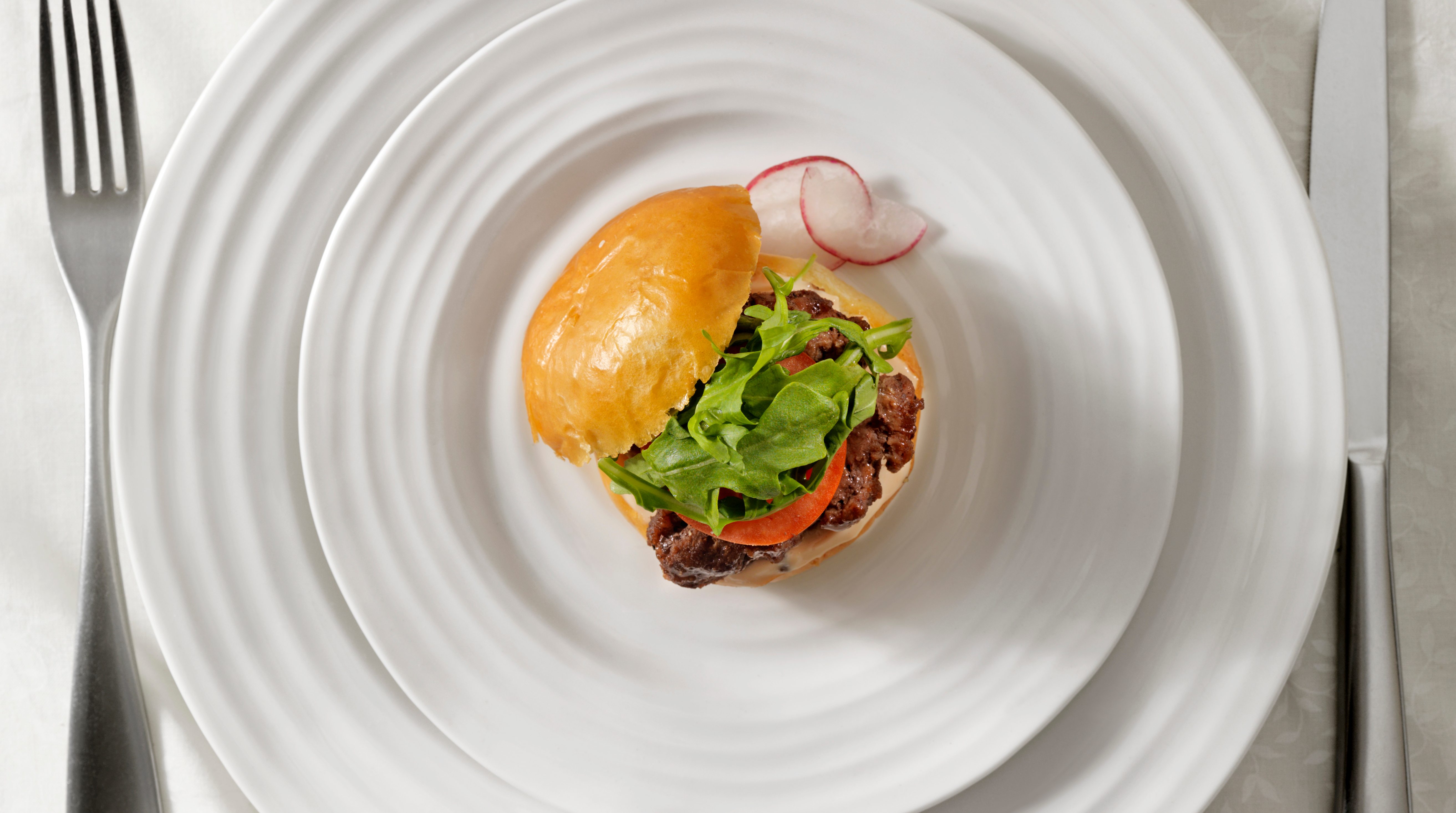Eating On A Small Plate May Not Trick Your Dumb Brain Into Thinking There's More Food
This is one of those news stories apparently designed to make me feel like a grade-A sucker: Science Daily reports today that a new study by Ben-Gurion University Of The Negev debunks the popular diet trick "based on the Delbouef illusion" that encourages people to eat their food off smaller plates because it will trick the brain into thinking the portion is larger than it truly is. Turns out, it doesn't work. Researchers found that "when people are food-deprived, they're more likely to identify a portion size accurately, no matter how it is served." The research, published in the journal Appetite, found that plate size is largely irrelevant, as "a serving looks similar whether it fills a smaller plate or is surrounded by empty space on a larger one."
I wish I'd discovered this before years of serving myself dinner on a salad plate, instead of a dinner pate. Often I'll have the smallest plate at the table, until even my kids are like, "What's with Mom's plate?" All this time, I could have had an actual plate like actual human.
Fortunately, according to another new (quite obvious) study, "thinking about eating healthy leads to choosing smaller portions," which may work better for portion control than looking like a giant with your toddler-sized dinnerware. I can't wait to try out this latest advice, until the next health-eating suggestion comes along.
